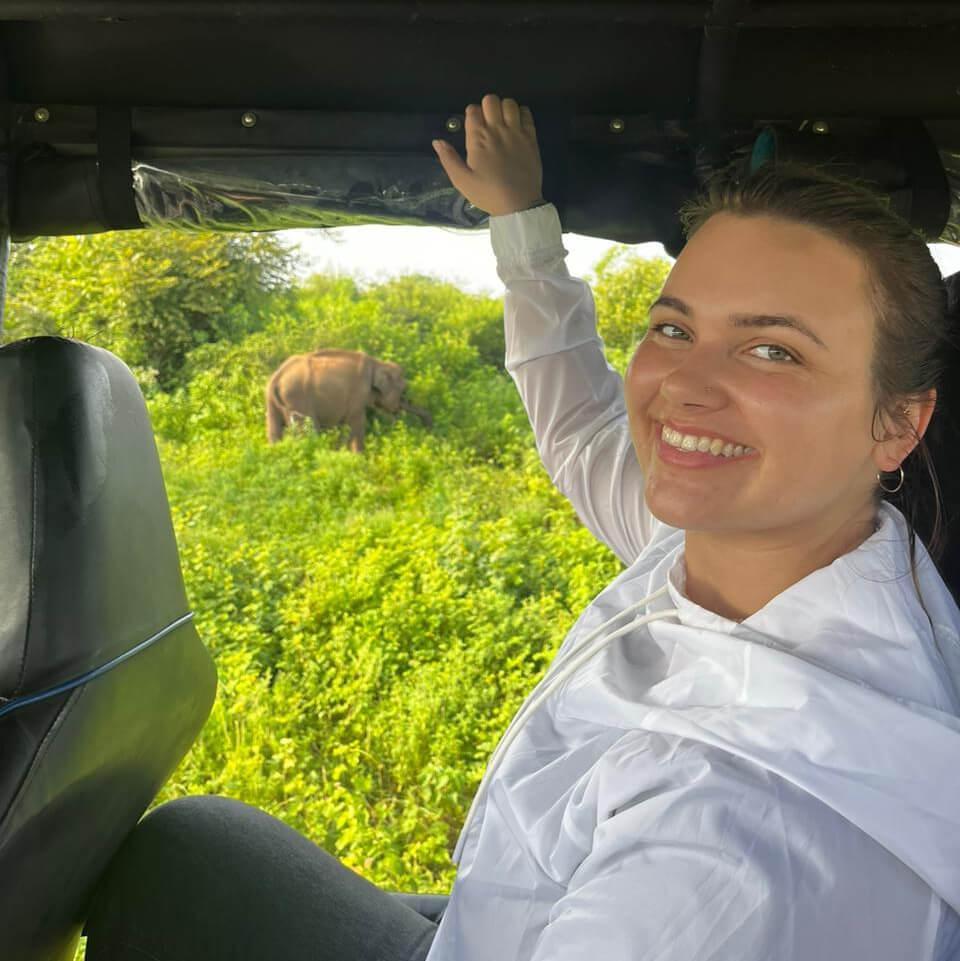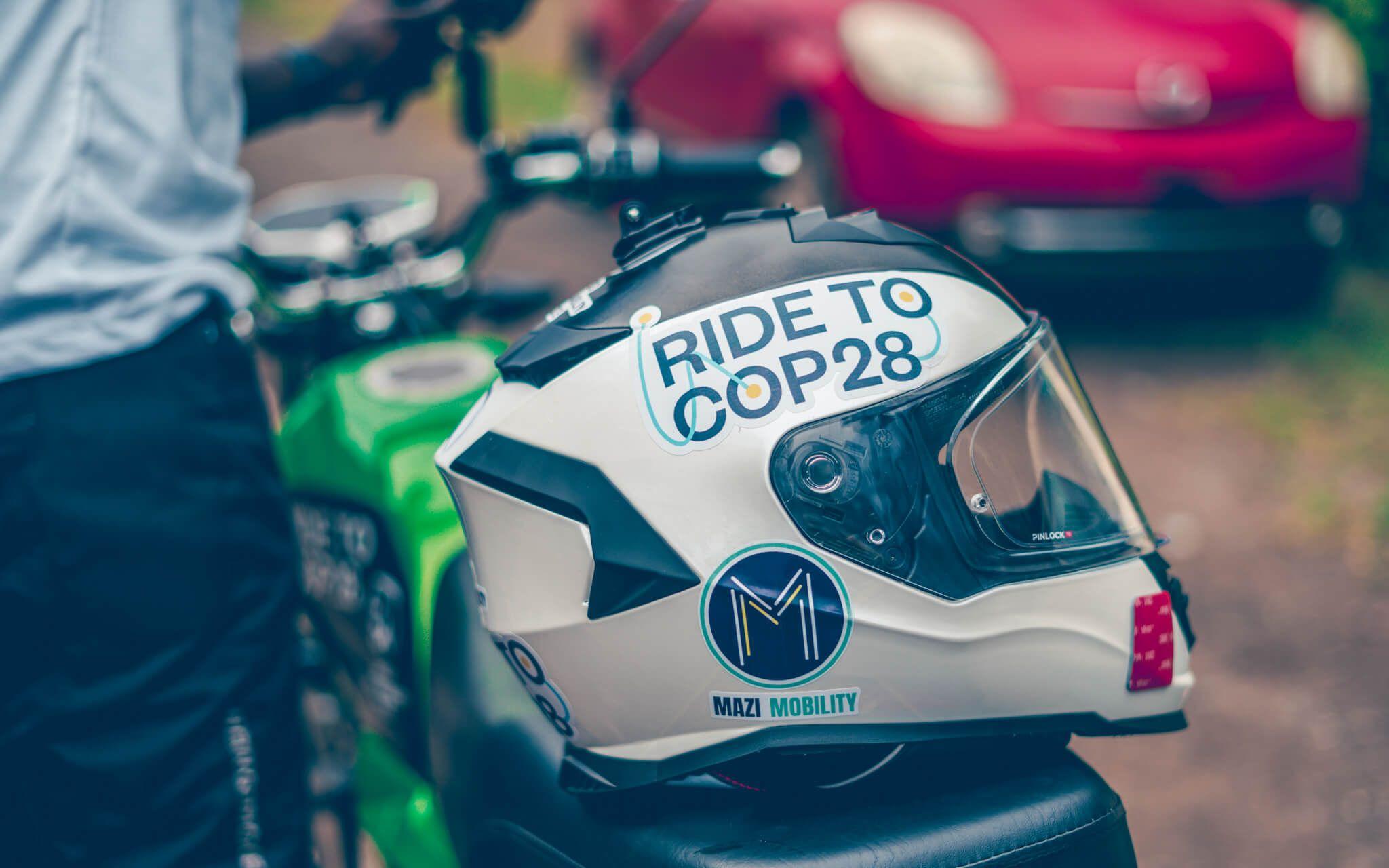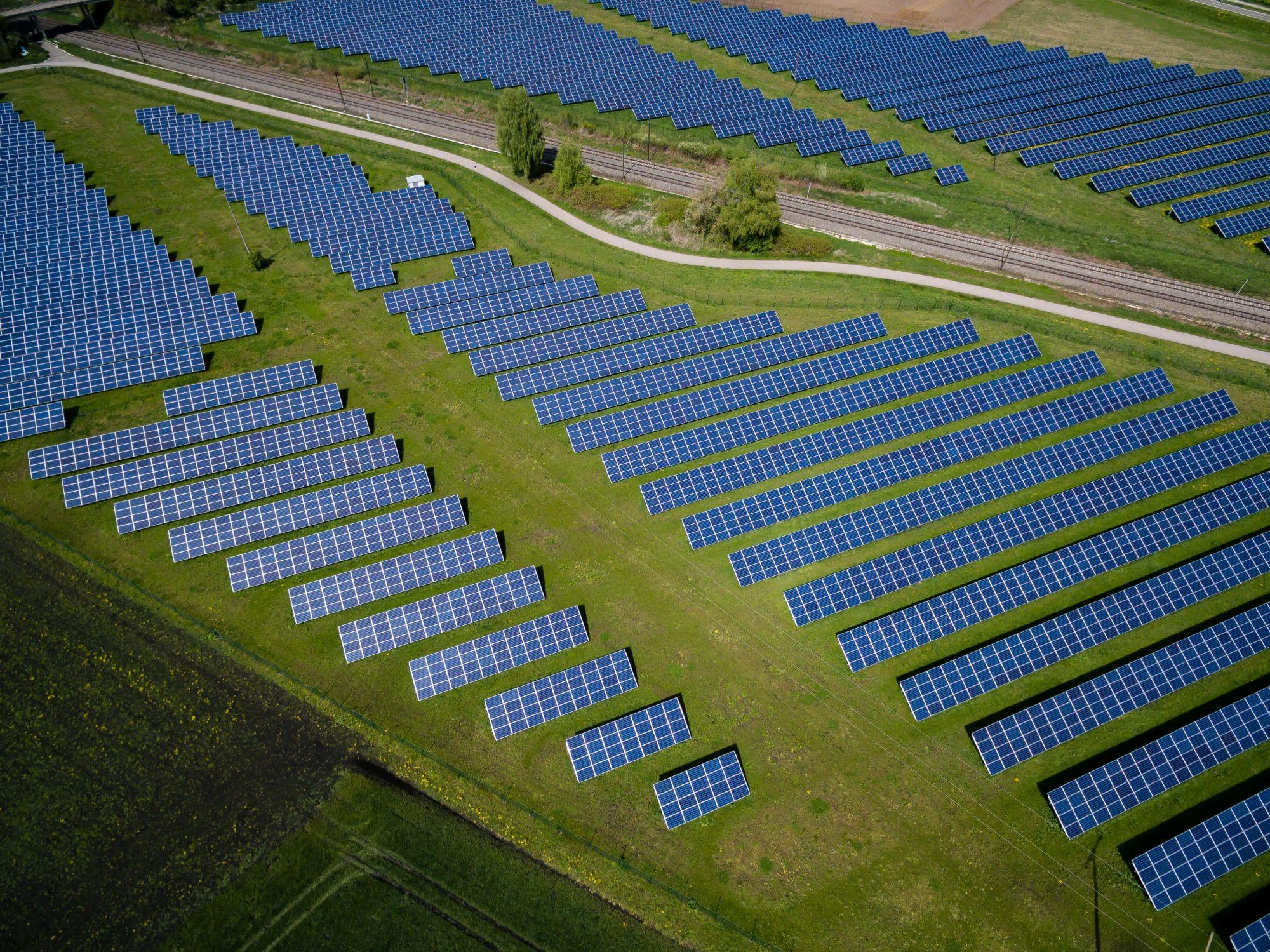Keeping Sustainable Fashion Cool
Two new companies are bringing ethically made, slow fashion to the UAE. Driven by a desire to make a difference, Deepthi Chandran Joyau of Only Ethikal and Zein Altawi of Yello are equally passionate about conscious consumption and stunning fashion.
We all know we should be more mindful while shopping: Look for the “sustainability” tag, check the percentage of recycled materials, opt for brands that are transparent about their production practices - the list goes on.
However, conscious consumerism requires determination, particularly in the UAE, where the convenience of fast fashion and same-day delivery speeds can overshadow sustainability efforts.
Enter Zein Altawil and Deepthi Chandran Joyau. Two lifelong UAE residents championing ethical production in local fashion.
As owners of sustainable fashion companies in the UAE, Zein and Deepthi have figured out how to get residents to embrace conscious consumption. One started her journey with the goal of disrupting the traditional clothing scene; the other fell into it unexpectedly.
Both are on a mission.


The Queen of Colour
“It’s like grandma clothing,” laughs Zein. “It’s very monochrome.”
Zein’s clear distaste for the style and colour of traditional abayas screams through the screen of our video call. Wearing a matcha green abaya and radiating determination, Zein shares her story with me.
“I'm a Palestinian born and raised in the UAE. I’ve always been very bold with my choices. I’ve always been the person who breaks patterns in my family,” Zein explains. Her climate advocacy started at the tender age of 14 when she made the choice to become vegan. Despite facing challenges in finding vegan-friendly options in Abu Dhabi, she’s never wavered in her decision, placing her principles over convenience in pursuit of a more sustainable planet.
During the COVID pandemic, Zein added another level to climate work; she began to research fast fashion, discovering layers of ugly exploitation and waste in the garment industry.
Driven by a belief that change begins within, Zein adopted a more sustainable lifestyle by carefully choosing clothing and only buying what she truly needed. “Between 2020 and 2021, I didn’t buy a single new abaya. And believe me, they called me the queen of abayas at university. At University, I was called the queen of colour.”
So, the Queen of Colour set out on a new mission - to create colourful, unique, sustainable traditional clothing.
Zein took an introspective approach to her work, spending two years educating herself before launching her brand in 2023. She took courses in sewing, fashion design, and business development, ultimately leading to the creation of Yello, a UAE-based fashion brand specialising in sustainably made abayas and traditional clothing.
From Conference Room to Kerala
“I come from the colourful land of Kerala originally,” smiles Deepthi. Born and raised in the UAE, she found her professional career in finance dull compared to her vibrant cultural background. After years in the corporate world, Deepthi felt it was time to slow down and reflect on carving her own path in Dubai.
“Fashion was something that I always liked because I was a heavy shopper. I was completely clueless about how it's done, what's happening behind the scenes.” Deepthi admits. “My first conversation around sustainability in general happened in 2019,” Deepthi recalls. “We were discussing Sustainable City, what they're doing, and why it's very important to incorporate these things in our daily life.”
Inspired by Dubai's push for sustainability and curious about the fashion industry, Deepthi learned more through documentaries and reports.
“It was very shocking to see the impact the fashion industry has on the environment and the humanitarian situation,” she said. Deepthi immediately started looking for the changemakers, and what she found changed the course of her life.
“I stumbled upon a couple of brands with whom we work even today, based out of India. Such amazing brands. They upcycle, recycle, have handwoven solar-powered manufacturing units, and pay their workers fair and living wage - all homegrown brands.” Having spent her entire life in the UAE, Deepthi had a lot to learn at first. “I must admit that I’ve been completely ignorant about the culture of my country in terms of fabric making and the traditional craft.” She quickly immersed herself in the tradition of sustainability in India’s textile and fabric industries and was determined to bring that to the UAE.
These small, family-owned brands from India form the backbone of Deepthi’s sustainable fashion platform, Only Ethikal, an online boutique that showcases nearly 40 brands, offering a blend of traditional and modern clothing.
I stumbled upon a couple of brands with whom we work even today, based out of India. Such amazing brands. They upcycle, recycle, have handwoven solar-powered manufacturing units, and pay their workers fair and living wage - all homegrown brands.
Not Local? No Problem
Similar to many startup brands I've spoken with recently, Zein's largest obstacle was finding suppliers and production houses. This raises the question, does everything need to be local to be considered sustainable?
“My main challenge was I couldn't find a local supplier for these fabrics,” recalls Zein, who spent months searching for supply and production for Yello. She eventually landed in Spain, where Yello abayas are still produced today.
“One thing that I didn't like about the traditional clothing industry in our region as a whole is they don't innovate,” she reflected. “We don’t keep up with the crazy things happening in climate change,” says Zein, highlighting how nylon, commonly used in traditional clothing, traps heat, is harmful to the skin and creates an ideal environment for germs. When Zein discovered the cotton fabric she now uses for all her abayas, she recognised it as the perfect fit - a blend of EcoVero, a sustainable viscose fibre made from responsibly sourced wood, and Cupro, a biodegradable by-product of cotton production.
“They feel like butter on your skin,” Zein swoons. “They are heat resistant and cooling. It feels like an AC,” (a true benefit in a country where temperatures regularly top 40 degrees Celsius (105 Fahrenheit).
True to her name, the Queen of Colour created abayas in vibrant shades like matcha green, deep blue, and even Barbie pink.
Deepthi always intended for Only Ethikal to collaborate with established brands outside of the UAE - “They’ve already set up the groundwork for it.” Deepthi emphasises that Only Ethikal exclusively partners with brands that use natural fabrics and do not incorporate synthetic materials unless they are upcycled or recycled while ensuring fair wages for workers. She conducts a thorough vetting process for potential partners, evaluating their sustainable practices and commitment to using eco-friendly materials.
I asked Deepthi if she thought a production shift to the UAE would be something we’d see in the future. “Not for the foreseeable future, unless the UAE wants to become the production centre,” she smiled. “I think the UAE is already good at a lot of other things.” In her opinion, it’s counterproductive to consider replicating the practices of Only Ethikal’s partners here in the UAE. The textiles are in India, the labour is in India, and the tradition is in India.
The customers, however, are in the UAE.
Sustainability is a Customised Experience
Quality is often one of the first issues raised by those in the slow fashion movement.
Zein and Deepthi recognise that their success in the UAE and the greater GCC relies on delivering exceptional quality and a tailored customer experience.
“I don't think my customers actually think a lot about sustainability,” Deepthi says. “They are looking for something unique. I think it’s my job to get that to you in a sustainable way,” she says. And for Deepthi, that’s totally fine.
However, Deepthi's customer base is largely locals who have an amazing understanding of natural fabrics. “They can just touch and say, ‘No, this is a blend.’ or ‘This is natural’. And so what I understood is that there is a demand from their side, and they don't have enough options in the market.”
Only Ethikal operates on a make-to-order concept to mitigate waste from overproduction. “There's no inventory on our side, and there's no inventory on the brand side.” While an order may take 15-20 days for delivery compared to the usual 2-3 days in the UAE, Deepthi isn’t concerned about the wait. “We have the measurements of almost all of our customers,” creating a personalised experience for her local consumer base. “It really does almost feel like a curated experience for them without having to walk into a tailor.”
Their process resonates with locals, allowing them to engage with sustainability organically, even if that wasn't their original intention.
I do truly believe that when you serve a purpose, profit is just a byproduct
Like Deepthi, Zein isn’t worried about the customer's motivation to make that first purchase. Yello also provides a personalised shopping experience, allowing customers to customise the length, style, and cut of each abaya. Zein particularly loves the affirmation tags that customers choose before checkout and have stitched onto the back. Each abaya is delivered in a customised tote bag, and the plantable thank-you note ensures a 100% sustainable experience.
“Fashion is psychology,” she explains, believing it’s imperative to tap into consumer psychology and patterns, even when you’re focused on sustainable fashion.
Looking Forward, Female Driven
As my interviews with Zein and Deepthi wind down, both are eager to stay just five minutes longer to continue our conversation. Zein proudly shared that Yello was the only local brand to participate in COP 28’s sustainable fashion show. “We got the opportunity to close the show, and we were the only brand that accommodated people with determination,” Zein explained, showing me photos of one of their models in a wheelchair.
Deepthi takes a moment to give a shout-out to her all-female team based in India, who manage operations remotely. “Hats off to my team because we all work very remotely, and it's not easy when you're remotely placed and have to speak to people from different countries, customers with different minds, different languages.”
In a country largely driven by capital, where success is often measured by growth and profit, Zein and Deepthi are marching to a different tune.
“I do truly believe that when you serve a purpose, profit is just a byproduct,” Zein emphasises, capturing their shared philosophy: Purpose over profit with style and substance all neatly wrapped up in an elegant outfit.
Most Popular
The Climate Tribe delivers stories about Biodiversity and Conservation, Circular Economy, Food and Water , and how they intersect with climate.
Subscribe
Get the latest stories inspiring climate action around the globe straight to your inbox.





